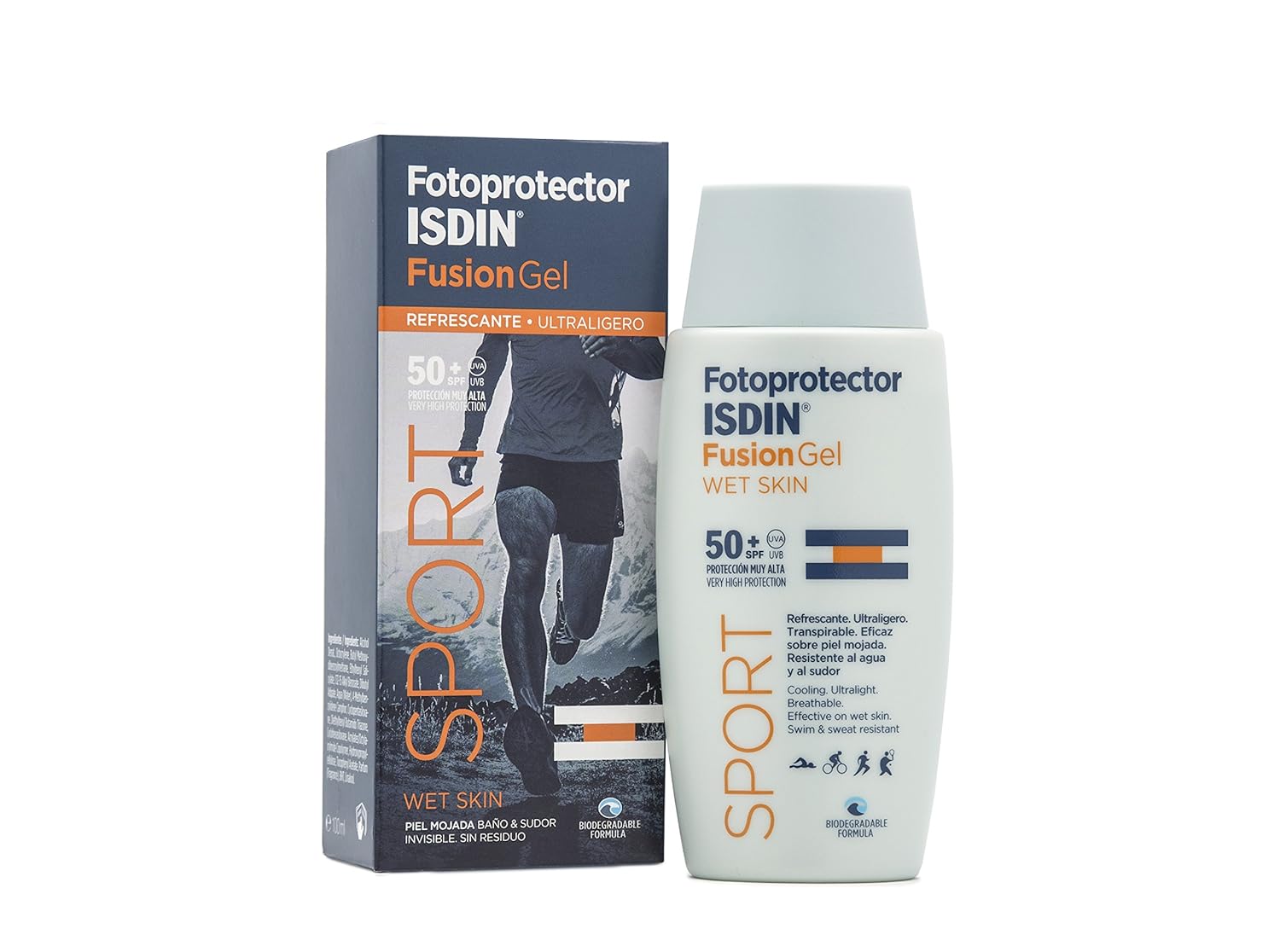There are no more excuses. Summer is just around the corner and we start to see how supermarkets stock up on thousands of cans of sunscreen. Should they be all year? Yes, but we are not used to using it exclusively for sunbathing. Going to train outdoors also requires that we protect ourselves properly from UV rays so as not to damage the skin or suffer unnecessary burns.
Just by exposing ourselves for 10 to 15 minutes a day, our skin accumulates damage over time and favors early photoaging. It is normal that your outdoor workouts (without protection) cause wrinkles, blemishes or sagging, without forgetting cancer. So to avoid scares over time, we solve the most common questions related to SPF. How is it used? What happens if I sweat?

Does a higher SPF number mean better protection?
We could say yes. Popular belief thought that an SPF 15 was as effective as a larger number, but science has shown that it is not. The higher the number, the greater the protection. High SPFs, such as 100, can have a noticeable effect against sun damage, says a study published in the Journal of the American Academy of Dermatology. Volunteers applied SPF 50 cream on one side of the face and SPF 100 on the other, resulting in 55% of the participants being more sunburned on the least protected side.
Still, you don't need to stress about choosing sunscreens above 50. Once that number is past there is very little extra protection. Logically, it will also depend on whether you are using it correctly. Remember that you need to apply enough quantity and reapply immediately after swimming or sweating, and every two to three hours.
What is the difference between a physical and chemical sunscreen?
Sunscreens have two ways of working: they either absorb UV rays or reflect them away from the skin . In the case of chemicals , they work by absorbing the damaging energy of UV rays. They are the most traditional sunscreens and have ingredients like oxybenzone, octinoxate, octisalate, octocrylene, homosalate and avobenzone, or a combination of all. Those carbon-based ingredients convert UV rays into heat and release them.
On the other hand, there are mineral sunscreens that stay on top of the skin and divert or scatter UV rays. Yes, those famous creams that leave our skin white. These are normally made of zinc oxide or titanium dioxide. Actually choosing between chemical or physical protection is almost a personal choice.
Usually, many people avoided creams due to their thickness and opaque white coverage, but new technologies have improved this effect and almost everyone now feels lighter.
What ingredients cause my eyes to itch?
We have all experienced that terrible feeling. Well, it is not really the active ingredients of the sunscreen that cause this stinging, but the ingredients that act as a "vehicle" for the ingredients that protect the sun, that is, the cream. It is best to avoid chemical sunscreens that contain octylmethoxycinnamate or that contain perfume .
What can I do when I sweat while training?
Logically, when you start sweating, the sunscreen starts to peel off your skin, so you'll need to reapply it. Look for oil-free, water-resistant formulas to limit the amount of sunscreen that comes off your skin (especially your eyes). You can even get a sunscreen powder. This will absorb sweat throughout the workout and will feel like a sticky barrier.
You should apply sunscreen an hour before leaving, so that it gives you time to absorb. If your training is going to last more than 2 hours, you should take your protector to reapply on the go.
I leave you here my favorite. It is ideal for sports, absorbs very quickly and does not leave white spots. It is also very light.

If I don't burn, what am I going to use sunscreen for?
Many people make this mistake. Sunburn is generated by UVB rays, and skin cancer is caused by UVA rays (which are the majority of UV rays). Just because you are burned does not mean that you are protected against skin cancer. In addition, sun damage also causes accelerated photoaging, and it accumulates even though the skin does not burn.
If it is cloudy or if it is winter, should I apply it?
We said it at the beginning, it is a mistake that supermarkets offer sunscreen only in hot weather. UVA rays that cause skin cancer are present year-round and all day. In fact, on cloudy days, up to 80% of the sun's (harmful) UV rays can penetrate the skin. Make it a habit, put on cream before each outdoor race regardless of whether it is winter or summer.
Do athletes have a higher risk of skin cancer than non-athletes?
It is true that there is no extensive research on athletes, but it makes sense that if they spend more time outdoors, they are more vulnerable. A study , published in the journal Dermatology, found that Tour of Switzerland riders were 30 times more exposed to UV radiation than recommended.
Obviously, anyone who spends more time in the sun has a higher risk of skin cancer. So, in theory, someone who runs outdoors is taking more damage and has a higher risk of skin cancer than someone who is not outdoors for the same amount of time. So protect yourself!
What if I am prone to acne breakouts?
It is not an excuse that you do not apply sunscreen because you are prone to acne. As with any other skin care product, you have to buy a protector that on its label announces that it is made from water, without oils, indicated for skin with acne or greasy, or non-comedogenic. The latter means that the sunscreen was created specifically not to clog the pores.